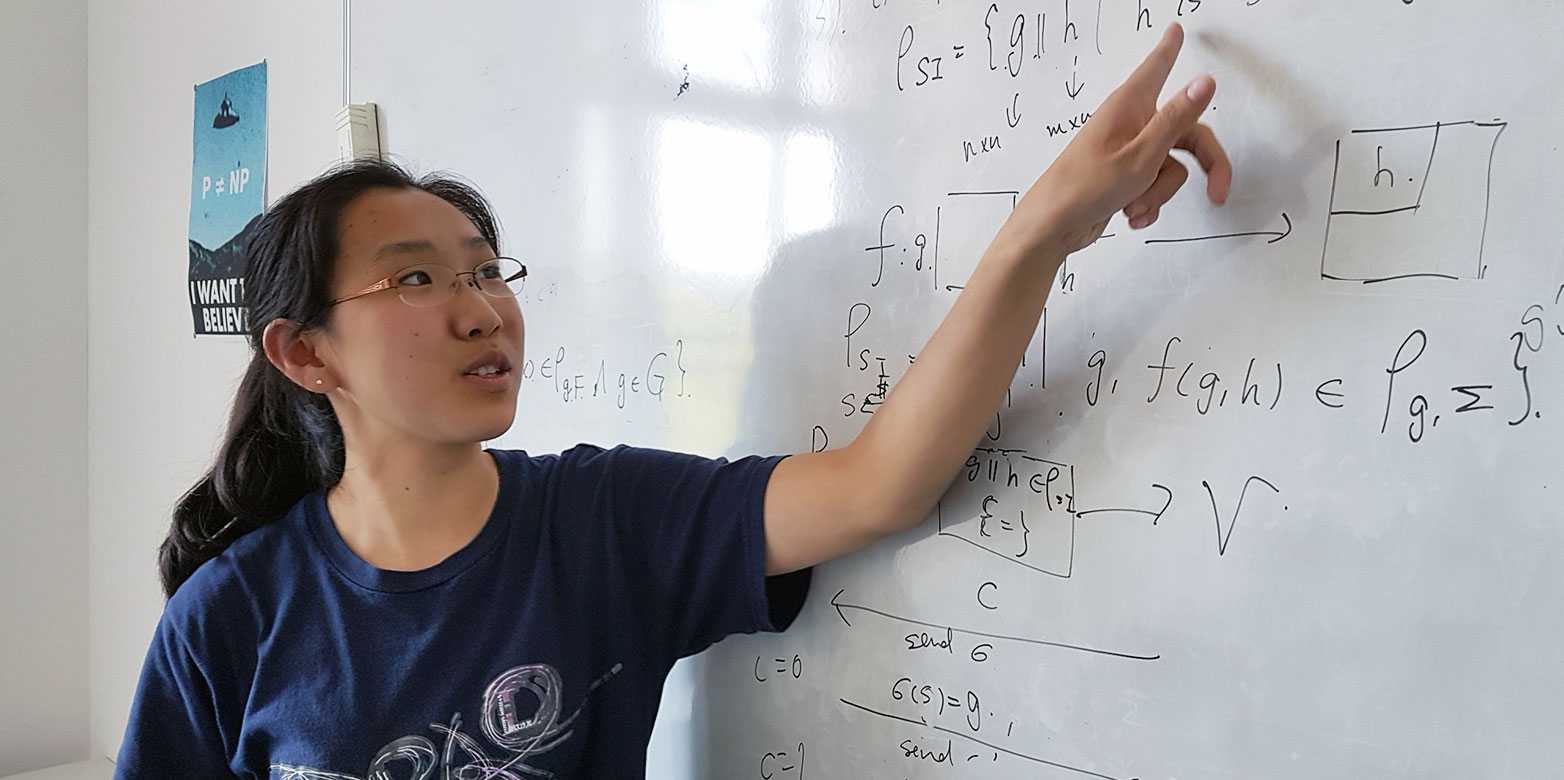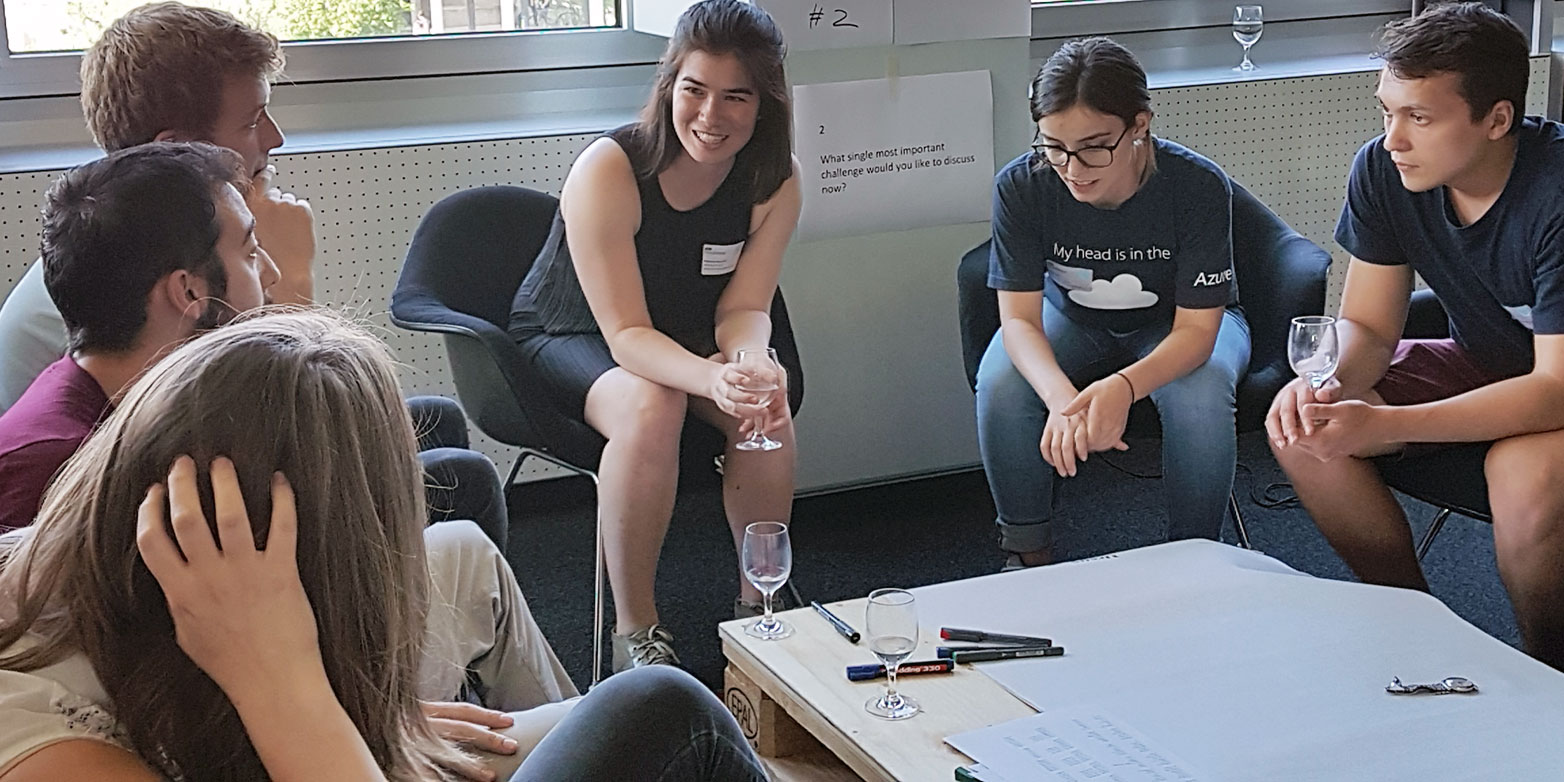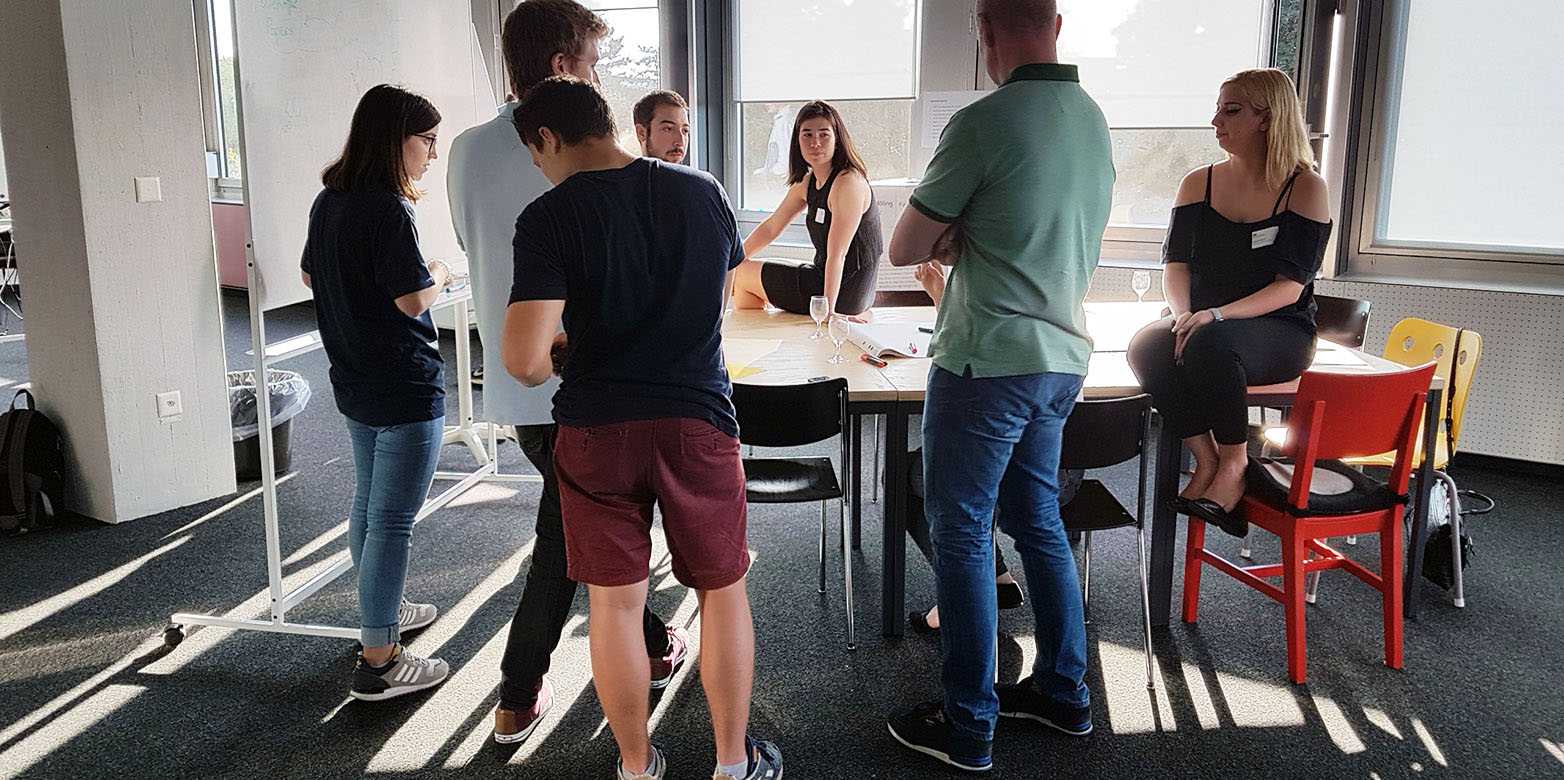The love of problem-solving
What if you had the chance to complete your own research project at ETH over the summer and to join in discussions about the university’s future? Two students, Katherine Bancroft and Siqi Liu, seized this opportunity, made possible by a new student programme at ETH’s Department of Computer Science.
What is needed for machine-learning computers to be able to understand words with two or more meanings? How can very complex statements be broken down into simple statements, so that they can be encoded better and exchanged securely using computers?
These are the questions addressed by Canadian student Katherine Bancroft and Chinese student Siqi Liu, who have just completed their second and third year of studies respectively at other universities. This summer, they are attending ETH Zurich, where they are conducting a research project of their own for the first time. Both students were awarded a “Student Summer Research Fellowship” by the Department of Computer Science at ETH. This fellowship gives computer science students from around the world the opportunity to spend two months gaining research experience, and trying out something new, in Zurich’s “IT biotope”. More than 1,200 students applied for the programme, which was awarded for the first time this year and receives support from the Rectorate and funding from the Huber-Kudlich Foundation. Fifteen students were successful.
A new “research culture”
Bancroft and Liu’s interests reflect the breadth of computer science, which since the beginning has combined a mathematical side with a technical one. Liu feels a greater affinity with theoretical computer science. She moved to the US after finishing school in Beijing and since then has been studying computer science at the University of California in Berkeley. In Zurich, she wants to expand her knowledge of information security and encryption theory under the cryptography expert Ueli Maurer, and to familiarise herself with a new “research culture”.
For her part, Bancroft is pleased that her project’s orientation is more experimental than theoretical: “I want to get some hands-on research experience while I’m here,” she says. Bancroft studies computer engineering at the University of Toronto. In the team led by Thomas Hofmann, an expert in data analytics and machine learning, she is currently studying how computers can better understand natural language. Her project focuses on improving existing computer language models in such a way that they can process ambiguous words meaningfully.
A love of problem-solving
At present, many computers face problems when they are required to understand complex sentences containing ambiguous words – and Bancroft relishes challenges of this kind. She says it was the “love of problem-solving” that attracted her to computer engineering: “I am drawn to problems where I can follow a rigorous mathematical approach and at the same time apply my technical skills.” However, her route into computer science was not predestined. She initially considered studying business economics or environmental sciences. It was only when she took an introductory course in programming that she felt certain computer science was the right subject for her.

Liu also initially considered other subjects – particularly since she did not have an exact idea of what “computer science” consisted. For her, it was an introductory course in probability theory that sparked her interest: “In the course, it became clear to me that computer science is about much more than just programming and that it’s just as exciting as pure mathematics,” recalls Liu, who cites algorithmic game theory and cryptography as her “pet subjects”.
In Zurich, she is working closely alongside an ETH doctoral student: “We are interested in whether a person can prove certain statements to someone with only a limited knowledge of the statements. No additional knowledge about the statements should be provided to the other person.” In their project, they hope to find a way to deconstruct true but highly complex statements into simple ones, so that if the truth of the simple statement is proven, it will also prove the truth of the complex statement.
Cultural diversity as a unique feature
In Maurer’s research group, Liu likes how openly the team members are able to contribute their personal views and ideas to discussions – in general, the university’s international character appeals to her. “ETH brings together researchers with very different academic backgrounds and different ways of thinking. I like that,” she says.

For her part, Bancroft is impressed by the cultural diversity in Switzerland: “I am really fascinated by the strength of Switzerland’s cohesive cultural identity, even though each region is so distinct.”
In addition to working on their projects, the two students also meet regularly with the other visiting students. All 15 of the research fellows live in the same accommodation, which is provided by the student housing cooperative (Woko). It is also home to 21 students who are currently doing a life sciences or biosciences research project at ETH as part of the “Amgen Scholars Program”.
Research and project-oriented learning are part of a strategy by which ETH is seeking to train students from all over the world to become not only outstanding specialists in their own field but also critical members of society willing to take on responsibility.
The question of resources will shape the future
At a workshop in mid-August, Liu and Bancroft showed how students are examining the impact of science and technology on society. At the invitation of the two programmes’ project managers, Minh Tran (Department of Computer Science) and Nicole Tobler (ETH Student Exchange Office), they discussed the question of the societal megatrends that universities might have to address in future and what the university of the future could look like, disregarding possible trends.
From the students’ perspective, universities have a particularly important role to play in relation to the global use and distribution of resources, as they can contribute knowledge and technology to help solve related justice, development, environment and migration phenomena. On the other hand, new technologies such as artificial intelligence also harboured risks or a certain potential for conflict, such as a widening “ideological gulf”, if individual groups on social media read only news articles that confirmed their own opinions.
Critical Thinking and research control
Some controversy arose in the students’ discussion of whether and to what extent basic research can be influenced in order to diminish risks and negative impacts on society without restricting academic freedom. Some students mentioned critical thinking in higher education, and remarked that universities should provide even greater incentives to multidisciplinary and critical thinking in their teaching.

Comments
No comments yet